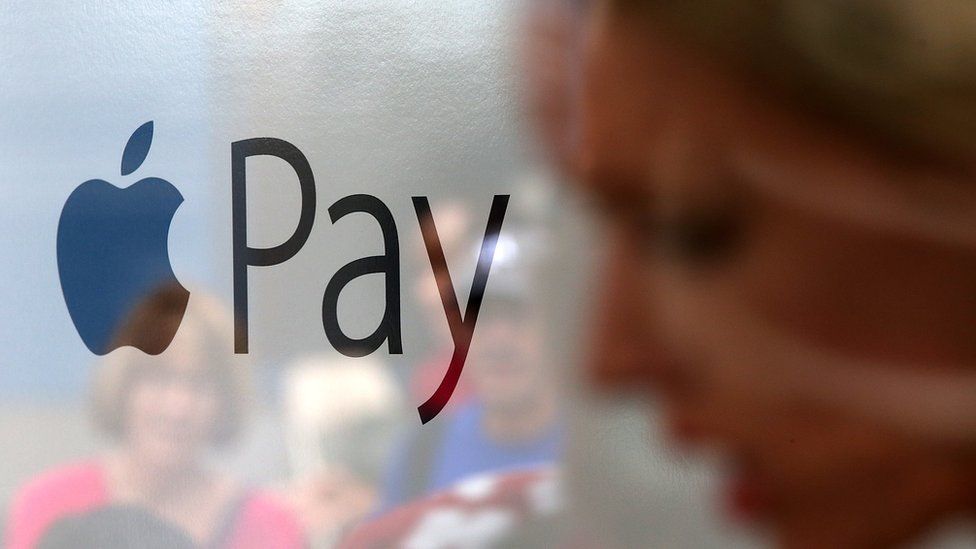Apple wins Australia ruling to retain Apple Pay dominance
- Published

Apple has won a major regulatory battle in Australia that will likely see it retain control of its contactless payment technology.
Four banks had wanted to negotiate with Apple to gain access to its payments technology for their own apps, avoiding having to pay fees to Apple.
But the country's competition watchdog has now barred them from collectively bargaining with Apple.
The decision is the first of its kind and could set a global precedent.
In its final ruling on the case on Friday, the Australian Competition and Consumer Commission (ACCC) said that the collective threat to boycott Apple was "likely to reduce or distort competition".
What did the banks want?
They wanted their own apps to have access to the contactless payment technology used in iPhones.
The near field communication (NFC) system allows users to settle bills by holding their phone to a small terminal, with the money deducted from a bank card registered with Apple Pay.
Commonwealth Bank, Westpac, National Australia Bank and Bendigo & Adelaide Bank together command around two-thirds of Australia's credit card market.
But so far, they do not allow their cards to be used with Apple Pay because they have never reached agreement on the conditions.
Why did they want to bargain collectively?
Doing so would have put them in a much stronger position against Apple.
They wanted to convey to Apple that unless it gave them access to its iPhone technology, they would continue to prevent their customers from using Apple Pay.
Apple Pay collects a fee from the bank for each transaction, meaning Apple risked a significant loss.
But the commission said that ruling in favour of the banks would have reduced competition by forcing Apple to act more like Google, who's more open Android operating system allows contactless payments from individual apps.
"It is a tricky issue for a competition regulator to force one competitor to adopt a strategy of the other competitor," ACCC chairman Rod Sims explained.
A big victory for Apple?
It certainly looks like it.
They can still negotiate with Apple individually, but with much less bargaining power than they had hoped for.
If a single bank blocks its customers from using Apple Pay, it might well be the bank that loses out. Customers could be unhappy about being left out and switch to another bank.
In fact, some of the other Australian banks that do allow their cards to be uses for payment via Apple have seen an increase in customers since the gridlock between Apple and that group of four.
Representative for the banks said they were "disappointed" by the decision and would review their future strategies.
- Published5 April 2016
- Published23 March 2017